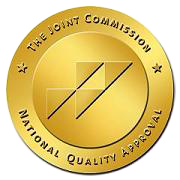How to Stop Binge Eating: Why It’s Not About Willpower
By Britt Berg, M.S.
“If I only had self-control — I could stop binge eating.”
This is the narrative most people share with our providers when they seek treatment for binge eating disorder (BED). Unfortunately, this belief, and the similar notion that there is something wrong with the individual, often causes more harm than good. Yet, the belief above is common. We live in a culture that idolizes self-control and perfectionism. Think about it: if you’ve spent any time on TV or any media recently, you’ve most likely come across messages telling you to:
- Exercise regularly (even if you don’t want to)
- Practice regimented “healthy” eating
- Adhere to some form of Westernized beauty standards
Seeing this list above, it’s no wonder that many of us feel shame and self-loathing, thinking we lack willpower and self-control. It’s no wonder that many of us believe that we will never be good enough to meet society’s high standards. And this is why our BED providers often remind patients that binge eating is not related to willpower.
What causes binge eating?
When someone is predisposed to binge eating or compulsive overeating, willpower is not to blame. What’s more likely is that one’s tendency to binge eat is a result of several factors:
- Genetics (binge eating disorders are more likely to run in families)[1]
- Psychological factors
- Society (cultural messages reinforcing weight stigma and diet culture)
Something to consider here is that binge eating actually exists on a spectrum of normal eating behaviors. Even people without eating disorders binge eat on occasion. The problem occurs when an individual has trouble stopping the binge and feels physically and/or emotionally distressed after the binge ends. When binge eating episodes occur regularly like this, what may be a “normal” binge becomes a distressing eating disorder. Unlike a “normal” binge, binge eating disorder is a serious eating disorder that most often heals with and benefits from professional treatment.
How do I stop binge eating? Tips from our experts
One of the most frequent questions our provides here from patients with BED is: “How do I stop binge eating? Here’s what they shared.
Tip 1: Have curiosity about binge eating.
Go inwards for a moment and think about your binge eating behaviors and what may trigger them. Ask yourself:
- What does it look like when I binge?
- What am I feeling before, during and after a binge?
- What triggers me to binge?
- How do I typically overeat?
- Where does this happen?
Once you’ve answered these questions, there are several things you can do. Let’s say that you notice that you are more likely to binge if you are watching TV. TV watching may be a BED trigger for you. Behavior changes you can consider making include:
- Eating at a table instead of in front of the TV
- Eating food on a plate, instead of out of the food container
- Eating while sitting on a chair, not standing up at the counter or in front of the TV
Tip 2: Eat mindfully to reduce the urge to binge.
How often are you eating with a mobile phone in your hand or while watching TV? Screens can distract us from what we are doing, and that includes eating. Our BED providers teach individuals how to be mindful as they eat. They recommend that patients avoid numbing out and eating mindlessly because that can lead to overeating. Instead, they encourage you to use your senses while eating:
- What do you see? Notice the colors, the textures, the individual ingredients.
- What do you smell? Can you isolate the smells of individual food items?
- What do you taste? As you chew, enjoy the flavors of the food you eat.
Tip 3: Notice what happens before and after a binge.
Another beneficial practice that can help you reduce binge eating episodes is to take a look at the “data” — write down what happens before and after a binge. Some prompts to help you get started:
- What happened to you the week before you binged?
- What happened to you the day before you binged?
- What happened to you in the hour before you binged?
- What were you feeling before the binge?
- What did you feel during the binge?
- What did you feel after the binge?
- Did you feel upset or vulnerable before you binged?
- Did you adequately nourish your body the day you binged?
It sounds like a lot to think about, but this exercise can help you build more self-awareness around your eating. And you can take this data and use it to help inform your future – with no judgment.
Tip 4: Practice self-care and have self-compassion, even if you binge.
Remember the perfectionistic societal messages I mentioned earlier? Even if you are aware of your triggers and are eating mindfully and doing the work to reduce binge eating episodes, you still may binge eat on occasion. I spoke to National Clinical Response Manager for Eating Recovery Center and Pathlight Mood and Anxiety Center Meredith Nisbet, MS, LMFT, CEDS-S (she/her) and here’s what she shared,
“Binge eating disorder recovery looks different for everyone. A complete cessation of binge eating is not always the goal (or it’s not always an accessible goal). Recovery is a path and not a destination. Eating patterns ebb and flow! But we can learn how to manage our emotions in the process and identify the connection between our emotions and our eating habits.”
You still may binge on occasion, and that is OK. And this is why we encourage you to practice self-compassion on a regular basis, because it may help you avoid being hard on yourself if you do overeat.
Tip 5: Reach out for help if you are struggling.
As mentioned earlier, binge eating disorder is the most common eating disorder. In the U.S., an estimated 3.5% of women and 2% of men experience binge eating disorder in their lifetime.[2] So, if you binge eat, you are not alone!
Is binge eating is affecting your life? Our clinical team has come up with a brief self-assessment quiz that can help you determine if binge eating is negatively impacting you or causing a great deal of distress. You can also reach out to us for a complimentary, confidential assessment today or take our binge eating self-assessment quiz today.
Help for binge eating
Our specialized programming for binge eating provides you with a safe, inclusive healing environment to address emotions, thoughts and behaviors related to binge eating and body image. In a small community with others with similar experiences, you will learn and practice a consistent, mindful eating approach while building skills to manage binge eating behaviors.
- Our on-site binge eating treatment center is located in Chicago, IL.
- We provide virtual binge eating disorder treatment to individuals in multiple states around the country.
Binge eating disorder rarely requires inpatient eating disorder treatment [3]. In treatment, individuals set goals to help them stop binge eating behaviors. They may work on identifying triggers, changing thought patterns, developing coping skills and nourishing the body. A variety of evidence-based therapies are also incorporated into treatment, including
- Cognitive behavioral therapy (CBT)
- Acceptance and commitment therapy (ACT)
- Dialectical behavior therapy (DBT)
As they work to dismantle diet culture, individuals in treatment practice mindful eating as they find freedom from shame and guilt. You can see exactly how virtual binge eating disorder treatment works here.
Read These Next:
- Virtual Binge Eating Disorder Treatment: How Does it Work?
- How to Help Someone with Binge Eating Disorder
- Is Binge Eating Disorder Affecting Your Relationships?
- What Counts as a “Binge”?
This piece was clinically reviewed by National Clinical Response Manager for Eating Recovery Center and Pathlight Mood and Anxiety Center Meredith Nisbet, MS, LMFT, CEDS-S (she/her) on October 10, 2023.
Sources:
[1] Trace S.E., Baker J.H., Peñas-Lledó E., Bulik C.M. (2013). The genetics of eating disorders. Annu Rev Clin Psychol. 9:589-620. doi: 10.1146/annurev-clinpsy-050212-185546. PMID: 23537489.
[2] Hudson, J. I., Hiripi, E., Pope, H. G., & Kessler, R. C. (2007). The prevalence and correlates of eating disorders in the national comorbidity survey replication. Biological Psychiatry, 61(3), 348-358.
[3] Eating Disorders: A Comprehensive Guide to Medical Care and Complications. (4th edition). Edited by Philip S. Mehler, MD, FAED, CEDS and Arnold E. Andersen, MD, FAED, DLFAPA.
Through Eating Recovery and Pathlight At Home, our virtual intensive outpatient program for eating disorders and mood and anxiety disorders, we help you build resilience, skills and community in everyday life. Virtual care makes treatment convenient and accessible.
Struggling with an eating disorder?
One conversation can make all the difference. Connect with us today.
Get Help NowConnect With Us




